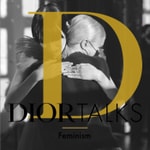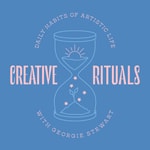Dior Talks – Details, episodes & analysis
Podcast details
Technical and general information from the podcast's RSS feed.

Dior Talks
DIOR
Frequency: 1 episode/34d. Total Eps: 54

Recent rankings
Latest chart positions across Apple Podcasts and Spotify rankings.
Apple Podcasts
🇫🇷 France - fashionAndBeauty
02/08/2025#97🇫🇷 France - fashionAndBeauty
01/08/2025#91🇫🇷 France - fashionAndBeauty
31/07/2025#83🇬🇧 Great Britain - fashionAndBeauty
30/07/2025#96🇫🇷 France - fashionAndBeauty
30/07/2025#75🇬🇧 Great Britain - fashionAndBeauty
29/07/2025#62🇫🇷 France - fashionAndBeauty
29/07/2025#61🇬🇧 Great Britain - fashionAndBeauty
28/07/2025#31🇫🇷 France - fashionAndBeauty
28/07/2025#31🇫🇷 France - fashionAndBeauty
27/07/2025#22
Spotify
No recent rankings available
Shared links between episodes and podcasts
Links found in episode descriptions and other podcasts that share them.
See allRSS feed quality and score
Technical evaluation of the podcast's RSS feed quality and structure.
See allScore global : 79%
Publication history
Monthly episode publishing history over the past years.
[DLA] Xu Zhen reinvents the Lady Dior: invitation to discover his unique imagination revisiting the spirit of this iconic object of desire
Season 4 · Episode 8
lundi 1 avril 2024 • Duration 15:27
Welcome to the Dior Talks podcast series dedicated to the eighth edition of Dior Lady Art, hosted by Paris-based journalist Katya Foreman. For this highly-anticipated edition, 12 artists from around the world were invited to transform the iconic Lady Dior handbag into a unique piece of art.
With his 360-degree vision of the art world, as a gallerist and curator, our latest guest, the renowned Chinese contemporary artist Xu Zhen, combines installation, video, painting and performance in a singular, inventive universe that explores subjects ranging from socio-political taboos to consumerism and the principles of the art market. The artist’s fascinating works subvert – not without irony – notions of artisanship and originality (relative to mass production), as well as concepts of ownership and globalization in the digital age. He thwarts and questions their effects on the art market, making visible certain dissonances and the resulting absence of logic.
For Dior, the conceptual artist, who has exhibited at a number of prestigious art institutions and biennales internationally, including the Venice Biennale, MoMA PS1 in New York and the Hayward Gallery in London, wanted to reflect on the value and meaning of discourse. Inspired by his “Metal Language” series – and made of transparent plexiglass and mirror-effect printed fabric – his two versions of the Lady Dior are adorned with golden and silver phrases and exclamations applied on a reflective surface to evoke a screen. The words are edged with gold and silver chains, like speech bubbles, serving as symbols of the emptiness of a language
that no longer has any real functionality.
Tune in to the episode to learn more about the artist’s playful and thought-provoking concept behind the bags.
Hosted by Ausha. See ausha.co/privacy-policy for more information.
[DLA] Artist Mircea Cantor revisits the Lady Dior through an entrancing interplay of optical effects, textures and perspectives
Season 4 · Episode 7
lundi 25 mars 2024 • Duration 22:09
Welcome to the Dior Talks podcast series dedicated to the eighth edition of Dior Lady Art, hosted by Paris-based journalist Katya Foreman. For this highly-anticipated edition, 12 artists from around the world were invited to transform the iconic Lady Dior handbag into a unique piece of art.
In this new episode, we immerse ourselves in the poetic universe of Mircea Cantor, an internationally renowned Romanian artist whose works, suspended between dream and reality, lucidly reflect his commitment to contemporary society. Cantor’s singular vision is embodied in a polymorphous practice that utilizes a variety of media, such as video, animation, sculpture, drawing, photography and performance but also collaborations with artisans for the conception of unprecedented installations, with a view to broadening the field of knowledge through this savoir-faire. Awarded the Marcel Duchamp Prize in 2011, his works are presented in prestigious international collections, notably the Pompidou Center in Paris, the Museum of Modern Art in New York and the Smithsonian American Art Museum in Washington.
The artist’s protean approach plays out in two Lady Dior creations that feature bewitching optical effects, textures and perspectives. Dressed by turns in black or beige leather, they are adorned with captivating embroidery evoking the beauty of the garden of Eden, filled with flowers of every variety, inspired by a traditional gilet from western Romania.
In contrast, the graphic lines of the bag’s cannage motif are highlighted by leather cord, an essential element of embroidery and leatherwork symbolizing connection, transmission and continuity. Completing the designs, the handles bear the words “make heaven out of what you have” – in French, English and Romanian – a true artist’s manifesto, while the charms are reinvented in an elaborate golden version, borrowed from the lexicon of jewelry. As a finishing touch, the inside of each bag contains a hand-designed silk scarf signed by Cantor as well as a logbook annotated by the artist.
Tune in to the episode to learn more about the genesis of this exceptional project.
Hosted by Ausha. See ausha.co/privacy-policy for more information.
[Feminism] Felicity Jones talks about acting, gender politics and her rejection of all-male environments
Season 6 · Episode 4
lundi 30 août 2021 • Duration 25:21
Welcome to ‘Feminism’, the latest series of ‘Dior Talks’ podcasts, hosted by Justine Picardie. ‘Dior Talks’ creates fascinating spaces for expression, exploring the imaginations and discourses of the artists and thinkers who influence Maria Grazia Chiuri. ‘Feminism’ engages in dialogue with the women who have inspired the Creative Director of Women’s collections and taken part in bold, empowering collaborations with the House. An exceptional roster of guests shares the magic of their thinking and the key moments of their careers with biographer and journalist Justine Picardie.
This episode finds actress Felicity Jones talks about the huge changes which have taken place in the worlds of theater, film and television in the last few years, with the advent of the #MeToo movement and the increasing challenge to patriarchal structures. Through her more than twenty-five-year career, Jones has seen a revolution in gender politics across the board and has been witness to the exposure of the misogyny which she herself has experienced in the industry. She and Picardie also discuss women in the history of literature, both in drama and prose, and how long it has taken film and television to catch up with the central role which female characters have always had in the culture and canon.
Felicity Jones was born in Birmingham in 1983, to an advertising executive mother and journalist father. She started acting at age 11, in an after-school workshop run by Central Television. At 14 she was starring in the TV series The Worst Witch and had a long-running role in the BBC Radio 4 soap opera The Archers. She has starred in many major television productions in the UK, as well as in the USA, and has appeared in numerous stage plays, including at the Donmar Warehouse and Royal Court Theatre. In 2011, she won a Special Jury Prize at the Sundance Festival and has also been nominated for Best Actress at the Academy Awards, the BAFTAs and the Golden Globes. In 2018, she starred in On the Basis of Sex, a biography of Supreme Court Justice Ruth Bader Ginsburg.
Here, Picardie and Jones get to the heart of the female experience of the world of acting. Picardie is a longtime admirer of the actress’s work, and their conversation travels from industry dynamics, the frustrations of working on an all-male set, the snail’s pace of the industry’s promotion of women’s leading roles and the changes and challenges which Jones has seen and overcome. They delve into the problematic notion of male genius and its erasure of historic female collaboration, and they discuss the remarkable life and career of Bader Ginsburg. The actress is a fan of Maria Grazia Chiuri and has worn her creations for Dior many times, and at many key events in her career. As she herself puts it, Chiuri designs clothes which a woman “can wear down the pub”, an apt expression of the feminism and freedom which fashion can nurture.
Hosted by Ausha. See ausha.co/privacy-policy for more information.
[Feminist Art] Katy Hessel talks to artist Eva Jospin, responsible for the huge embroidered work at the most recent haute couture show
Season 1 · Episode 12
mardi 10 août 2021 • Duration 37:11
Welcome to this 11th episode of the Dior Talks podcast ‘Feminist Art’. This series explores the connections between Creative Director of Women’s collections Maria Grazia Chiuri, and contemporary women artists and curators.
In this episode, series host Katy Hessel, a London-based curator, writer and art historian, speaks with Eva Jospin, the French artist whose monumental embroidered work lined the walls of the show space at the Musée Rodin for the Autumn-Winter 2021-2022 haute couture collection unveiled on July 5, 2021.
Eva Jospin was born in Paris, France, in 1975. She gave up her initial interest in architecture to study sculpture at the École Nationale Supérieure des Beaux-Arts de Paris, preferring the physicality of the process. Graduating in 2002, she has become known for her sculptural work using cardboard as a material, building up and combining its flat planes to create striking and very often large-scale pieces of complex depth depicting forests, caves, and country homes. With her art having been exhibited in prestigious locations such as the Palais de Tokyo, Manufacture des Gobelins, Musée du Louvre and the Hayward Gallery, she has also been an artist in residence at the
Villa Medici in Rome.
It was while in Rome that she discovered the Sala dei Ricami at the Palazzo Colonna, a sumptuous room entirely upholstered in Indian-inspired embroideries. It would prove the inspiration for her collaboration with Maria Grazia Chiuri, a “project that went from big to huge”. Her initial drawings would be developed into a work 40 meters long and 350m2, embroidered by hand by the Chanakya ateliers and the Chanakya School of Craft in Mumbai, India, a phenomenal undertaking requiring in the region of 300 artisans deploying some 400 colors of silk thread in 150 variations of traditional techniques.
In this episode she discusses how she looked to the palette of post-Impressionist painter Edouard Vuillard and the way he built color and perception of depth by utilizing the canvas itself as an intrinsic element. She speaks about how the name of her awe-inspiring installation ‘Chambre de Soie’ (‘Silk Room’), is also a reference to Virginia Woolf’s seminal feminist treatise ‘A Room of One’s Own’, known as ‘Une Chambre à Soi’ in French. With the use of textiles a complete departure, she opens up about embracing this new form of artistic expression and the process behind appreciating the scale and conceiving a visual flow for her expansive installation.
Hosted by Ausha. See ausha.co/privacy-policy for more information.
[Feminist Art] Katy Hessel talks to musical artist Ioanna Gika who performed at the Cruise 2022 show in Athens, Greece
Season 1 · Episode 11
lundi 21 juin 2021 • Duration 37:07
Welcome to this 10th episode of the Dior Talks podcast ‘Feminist Art’. This series explores the connections between Creative Director of Women’s collections Maria Grazia Chiuri, and contemporary women artists and curators.
In this episode, series host Katy Hessel, a London-based curator, writer and art-historian, speaks with musical artist Ioanna Gika, the Greek-American musical artist who performed at the Cruise 2022 show held in Athens, on the evening of June 17, 2021.
Ioanna Gika was born in Washington D.C. She spent her childhood between Greece and the United States, returning to live at her mother’s Greek home after her father’s death, when she started to write her first album, “Thalassa” (“Sea”) about her life and homeland. She is based in Los Angeles where, in 2009, she founded the band Io Echo with Leopold Ross. They released their debut album in 2013 and have supported Nine Inch Nails, Garbage and Florence + the Machine amongst others. They have performed at the Coachella and Lollapalooza festivals, and Gika has written and performed for movies and television consistently since 2012.
Having already performed at the Cruise 2018 show in Los Angeles, Maria Grazia Chiuri was delighted to invite her to collaborate with the House again. On the night, with a live orchestra and multimedia accompaniments, she recited a poem that reflected her roots in Greece and her rich, powerful voice resonated through the Panathenaic Stadium, the first stone of which was laid over 2500 years ago. She talks about this electrifying experience and the feeling of connection to the past which she felt as she performed. Having toured and sung widely around the world, she notes how unique and different this occasion was and how profoundly she seemed to be grounded in the moment. The monumental location itself possesses a huge significance. Constructed in white marble, it was a primary setting for the first modern Olympic Games. Its length symbolizes an ancient unit of measurement and, crucially for both the singer and Maria Grazia Chiuri, it was the first place in Classical Greece where women could freely appear and socialize in public.
Ioanna Gika reflects on notions of the word ‘race’ – the human race, the race against time, to participate in a race. The conjunction of these meanings in the stadium created a poignant combination of symbols and thoughts for her. She goes on to consider the personal and social significance of clothes, both in general and also the creations in the collection and the remarkable outfit specially designed for her. Like Maria Grazia Chiuri, she is inspired by the colors of Greece, by the use of blue and all the historical and mystical connotations which accompany it. She also weaves a beautiful connection between the visual sensations of fashion and womanhood and the sensory streams of consciousness so prevalent in her own music.
Hosted by Ausha. See ausha.co/privacy-policy for more information.
[Feminism] Eleonora Abbagnato, star of international ballet & regular collaborator with Dior, discusses feminism & childhood dreams of dance
Season 6 · Episode 3
jeudi 25 mars 2021 • Duration 28:24
Welcome to ‘Feminism’, the new series of ‘Dior Talks’ podcasts, hosted by Justine Picardie. ‘Dior Talks’ creates fascinating spaces for expression, exploring the imaginations and discourses of the artists and thinkers who influence Maria Grazia Chiuri. ‘Feminism’ engages in dialogue with the women who have inspired the Creative Director of Women’s collections and taken part in bold, empowering collaborations with the House. An exceptional roster of guests shares the magic of their thinking and the key moments of their careers with biographer and journalist Justine Picardie.
In this third episode, Picardie talks to Eleonora Abbagnato, one of the most important female ballet dancers of her generation. The native Sicilian has risen to the top of the fiercely competitive world of classical dance in both Paris and Rome. She has formed a close and fruitful friendship with Maria Grazia Chiuri, whom she asked, in 2019, to design costumes for ‘Nuit Blanche’, a new production paying tribute to composer Philip Glass, created by young French choreographer Sébastien Bertaud, in which she starred. Chiuri’s enduring love of dance and movement chimed with Abbagnato’s passions to form the first in a series of profound collaborations.
Eleonora Abbagnato was born in Palermo, Sicily, in 1978. No one in her family had ever danced before, but at the age of four she started to dance on her own in front of the mirror at home. She left her childhood home at age ten to study dance in Monte Carlo, and at 13 was touring Europe with legendary choreographer Roland Petit and his production of ‘The Sleeping Beauty’. She studied at the elite École de Danse de l’Opéra de Paris and joined the legendary Paris Opera Ballet in 1996. She has since had a meteoric ascent and, in 2021, is looking forward to her farewell performances as an étoile, or principal, this summer. She has also been highly prolific in her native Italy, where she co-hosted the Sanremo Festival in 2007 and, since 2015, has been the Director of the Corps de Ballet at the Teatro dell’Opera di Roma.
Here, Justine Picardie and Abbagnato hit the discursive ground running, comparing impassioned notes on the history of classical dance, the changing role of female dancers and the challenges, both mental and physical, that ballet presents. Abbagnato opens up about the huge strain female dancers in particular are put under by (mostly male) choreographers but goes on to reflect on the important and vitalizing contribution women directors and choreographers are now making to the field. She considers the importance of motherhood, both the inspirations of her own mother and also her hopes and ambitions for her young daughters today. They unwrap the special connection she has formed with Maria Grazia Chiuri, and the understanding of the essence of form and movement that has enabled her and her fellow dancers to express such beauty and empowerment while performing in the designs of the house of Dior.
Hosted by Ausha. See ausha.co/privacy-policy for more information.
[Feminism] Robin Morgan, the poet, author & a key figure in the American women’s movement, talks time, progress and her extraordinary career
Season 6 · Episode 2
jeudi 18 mars 2021 • Duration 32:28
Welcome to ‘Feminism’, the new series of ‘Dior Talks’ podcasts, hosted by Justine Picardie. ‘Dior Talks’ creates fascinating spaces for expression, exploring the imaginations and discourses of the artists and thinkers who influence Maria Grazia Chiuri. ‘Feminism’ engages in dialogue with the women who have inspired the Creative Director of Women’s collections and taken part in bold, empowering collaborations with the House. An exceptional roster of guests shares the magic of their thinking and the key moments of their careers with biographer and journalist Justine Picardie.
In this second episode, Picardie talks to Robin Morgan, a hugely influential feminist theorist and much-published writer and journalist. Morgan has been a key figure in the women’s movement, both in the USA and internationally, since the early 1960s, and was also an early participant in the civil rights and anti-Vietnam War movements of the time. She is widely considered a crucial figure in the development of modern feminism and has been forming international networks of like-minded campaigners throughout her adult life.
Robin Morgan was born in Florida in 1941, to a single woman who had come south to avoid the censure surrounding unmarried motherhood. She spent her early years as a child model and actor, appearing regularly in TV shows. However, her desire to write led her away from her mother’s ambitions for her acting career and towards a degree at Columbia University. She worked as a secretary for a literary agent after college and married poet Kenneth Pitchford in 1962, with whom she had a son, the musician Blake Morgan.
At this time, Morgan became active in various leftwing movements, writing for radical publications such as ‘Liberation’ and ‘The National Guardian’. She joined the Civil Rights Movement and in 1967 co-founded the New York Radical Women group. In 1970, she published her first anthology of theoretical texts, ‘Sisterhood is Powerful’. Concurrently publishing volumes of poetry and works of fiction, she received a National Endowment for the Arts Fellowship in 1979 and has, to date, published 21 books of feminist theory, poetry and fiction and, including several years as editor-in-chief of Ms., has written for multiple newspapers and magazines in the USA and internationally. In 1984, she founded the Sisterhood is Global Institute with Simone de Beauvoir, and in 2005 co-founded the Women’s Media Center.
In this second episode of ‘Feminism’, Justine Picardie and Robin Morgan get right to the heart of the major concerns and challenges which have faced and continue to face feminist struggles internationally. Morgan reflects on the surprises and insights of having lived eight decades and recalls the injustices which women faced in their daily lives when she was young. They discuss the transition to post-feminism and the different approaches to women’s causes around the world. Morgan considers the ever-evolving relationship between feminism and the cultural left, and also the perennial hostility from the right. They also talk about Morgan and Maria Grazia Chiuri’s mutual admiration and budding friendship, and the unlikely but magical interaction of fashion and radical feminism which occurred when Chiuri chose to honor Morgan’s remarkable career at a special ceremony in February 2019 in Paris. Morgan has been a long-standing inspiration for the Creative Director of Women’s collections.
Hosted by Ausha. See ausha.co/privacy-policy for more information.
[Feminism] Sharon Eyal, the singular dancer and choreographer, talks to Justine Picardie about her passions, inspirations and career
Season 6 · Episode 1
jeudi 11 mars 2021 • Duration 29:39
Welcome to ‘Feminism’, the new series of ‘Dior Talks’ podcasts, hosted by Justine Picardie. ‘Dior Talks’ creates fascinating spaces for expression, exploring the imaginations and discourses of the artists and thinkers who influence Maria Grazia Chiuri. ‘Feminism’ engages in dialogue with the women who have inspired the Creative Director of Women’s collections and taken part in bold, empowering collaborations with the House. An exceptional roster of guests shares the magic of their thinking and the key moments of their careers with biographer and journalist Justine Picardie.
Here, Picardie talks to Sharon Eyal, the highly esteemed dancer and choreographer, who directs the L-E-V Company, the unconventional yet rigorous dance troupe she founded with performance curator Gai Behar. Trained in classical ballet, she swiftly developed her own uncompromised style early in her career. She has become known for an expansive range of reference, strongly defined aesthetics and complex choreography, has won numerous major awards for her work and performed with her company worldwide.
Sharon Eyal was born in Jerusalem, a self-described ‘hyperactive child’ until her parents signed her up for ballet lessons at the age of 4. From 1990 to 2008 she danced with the Batsheva Dance Company, founded by Martha Graham in 1964, and served as associate artistic director for the Batsheva Dancers Create program from 2005-12. Since its founding in 2013, L-E-V has been the arena for her profound, beguiling vision of choreography, with electronic music, fashion, contemporary art and club culture regular references. The company has performed at major venues such as the Joyce Theater, New York, and Sadler’s Wells, London, and international festivals including Jacob’s Pillow Dance Festival, Montpellier Danse and Julidans.
In this first episode of ‘Feminism’, Justine Picardie, a longtime fan, asks Eyal about her unrelenting passion for dance and movement as they discuss the central themes of freedom, physicality and flight, both corporeal and emotional. Despite its grueling realities, dance has been a release for Eyal and, intriguingly, a centering source of calm. She talks about the connection she formed with Maria Grazia Chiuri collaborating on the Spring-Summer 2019 show at which Eyal’s dancers gave a remarkable performance, an experience repeated in ‘Disturbing Beauty’, the film that presented the Autumn-Winter 2021-2022 collection. Eyal finds huge inspiration in Maria Grazia Chiuri’s designs and recognizes the importance of female movement, female expression and, most crucially, female liberation in the women’s collections.
Hosted by Ausha. See ausha.co/privacy-policy for more information.
[Female gaze] The feminist art historian and critic discusses self-portraiture and photography as tools for female self-expression
Season 3 · Episode 17
jeudi 29 octobre 2020 • Duration 31:05
Welcome to the 17th episode of the Dior Talks series ‘The Female Gaze’. With the term developed in response to the writings of feminist film theorist Laura Mulvey, this podcast series will explore how the work of the female photographers, directors and creatives collaborating with Dior offers a radically new and progressive image of women.
In this new episode, series host Charlotte Jansen, a British journalist and author, talks to Raffaella Perna, the highly-esteemed Italian art historian and theorist of feminist visual cultures. A prolific writer, Perna has been based in Rome for much of her career, maintaining her theoretical practice and teaching widely, including at the prestigious Sapienza University. She is also a curator, and last year co-curated with Marco Scotini the exhibition The Unexpected Subject: 1978 Art and Feminism in Italy at the FM Centro per l'Arte Contemporanea in Milan, sponsored by Dior.
Perna has a long and distinguished biography as a specialist in Italian feminist art, and the country’s feminist movements in general, most particular during the vital and energized years of the 1970s. She has a particular focus on self-portraiture and its ramifications for female creative agency. She first met Maria Grazia Chiuri in 2008, through feminist icon and artist Tomaso Binga, to whom Charlotte has also spoken as part of this series. The two immediately identified with each other through their mutual passions and concerns, and Perna was instantly struck at how unusual it was for Chiuri as a fashion designer to be so influenced, and so creatively driven, by the politics and conceptual concerns of the movement. She also recognized how influential fashion is, and how interesting it is to consider the potential for its impact as a vehicle for conversation and action.
Here, Charlotte Jansen chats with Raffaella Perna about her dedication to the individuals and trailblazers who have formed the very specific and challenging feminist movements in Italy. The ’70s marked an extraordinary time for women in the country, as a previously conservative and religious society in which women had always occupied a constricted role was exploding and expanding. Women were writing, teaching, making art and campaigning as never before, and Perna is in the unique position to both remember and contextualize it all. She describes the rich landscape of relationships and collaborations which constituted the world of Italian feminism at that time, and her role as a primary theorist and recorder enables her to offer meaningful, prescient comment on the contemporary situation in 2020.
Raffaella Perna is one of the only The Female Gaze guests who has not been either a photographer, director or artist herself, and Charlotte Jansen takes the opportunity to delve deeply into the founding principles and dreams of feminism, which has inspired and continues to inspire the work of the Creative Director of Dior women’s collections so profoundly.
Hosted by Ausha. See ausha.co/privacy-policy for more information.
[Female gaze] Artist and photographer Viviane Sassen discusses the connections between fine art & fashion elements of her creative practice
Season 3 · Episode 16
jeudi 22 octobre 2020 • Duration 29:47
Welcome to this 16th episode of the new Dior Talks series ‘The Female Gaze’. With the term developed in response to the writings of feminist film theorist Laura Mulvey, this podcast series will explore how the work of the female photographers and creatives collaborating with Dior offers a radically new and progressive image of women.
In this episode, series host Charlotte Jansen, a British journalist and author, speaks with the Dutch artist and photographer Viviane Sassen, whose highly prolific, category-defying career blurs the boundaries between fine art and fashion photography, and whose unique aesthetic led to a collaboration with Maria Grazia Chiuri to photograph the campaign for the cruise 2019 collection with Jennifer Lawrence. Her uniquely dream-like aesthetic originates partly from her early childhood experiences in Africa and also with her determinedly expansive approach to photography and insistence on viewing the image through varied metaphorical lenses.
Viviane Sassen was born in Amsterdam but spent some of her formative childhood years in Kenya, before her family moved back to the Netherlands in 1978. She studied design and photography and gained a Master’s in Fine Art from the prestigious Ateliers Arnhem. She has returned repeatedly to Kenya and other parts of Africa throughout her career and credits her early experiences in the region for her fascination with ideas of place, identity and anonymity and her use of ideas of memory, abstraction and surreality in her work. She has shown widely around the world, including exhibitions at MoMA, Les Rencontres d’Arles, Nederlands Fotomuseum and the Photographer’s Gallery in London. She was awarded the Dutch Prix de Rome in 2007 and many other awards internationally in recognition of her work.
In this week’s episode, Sassen discusses her life and the concept of time in the studio during lockdown and her relationship to the travel and movement which is inherent in her practice. She also speaks about her own viewpoint and her various subjects; how aspects of this gaze are constant and deeply personal, but also how her eye shifts and adapts according to the project she is working on, whether fine art photographs or her prolific output as a fashion photographer.
Hosted by Ausha. See ausha.co/privacy-policy for more information.




